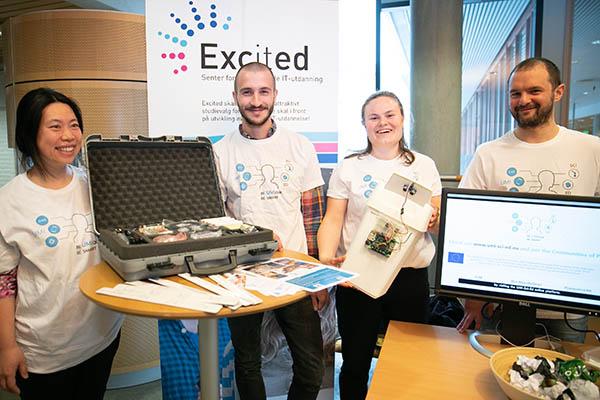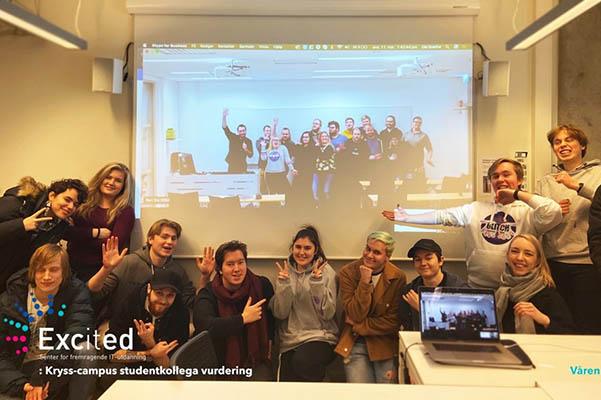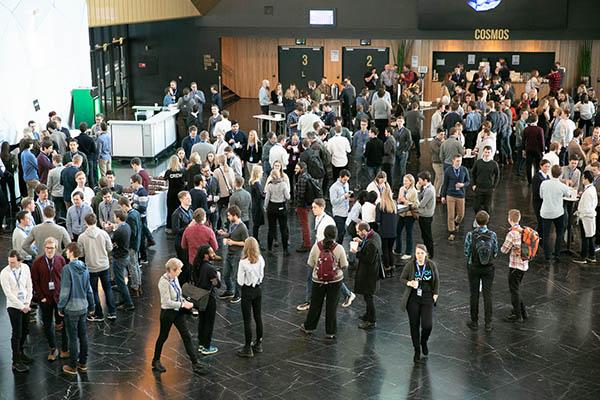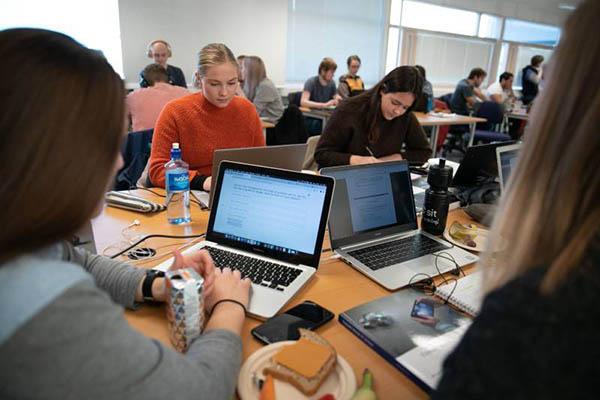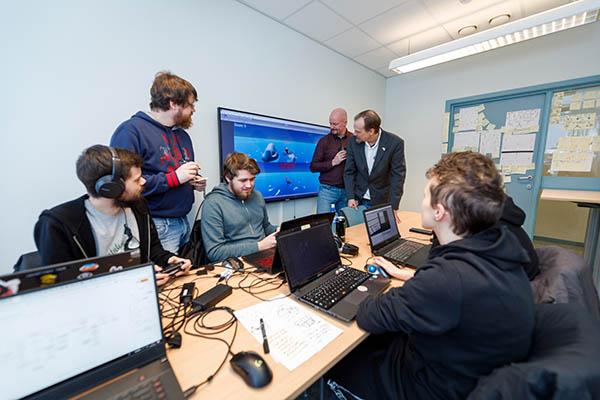PhD candidates and projects
Excited PhD candidates and projects

Read more about the PhD Candidates
PhD projects at Excited
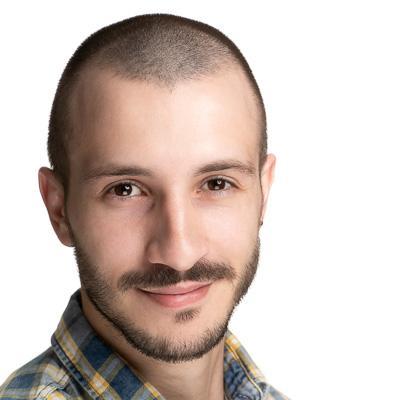
Vojislav is currently working on pre-university computing education, with the focus on teachers in Norway. One of the main interests in his research project is exploring how the teaching process could be improved beyond the curriculum. Addressing teaching itself in computing is deemed important because of the lack of structured curriculum, teaching guidelines, community support and very fast changes in the field of computing. As of now the idea is to explore how could Reflection and Cooperation (in classroom and between teachers) aid and improve work of computing teachers. Ultimately it is expected to start creating a Community of practice for computing teachers in Norway.
Vojislav plans to conduct and finish a systematic literature review on Identified Teachers’ competencies in computing education, after which he will organize and conduct interviews with teachers in local Secondary schools to map and identify problems that teachers themselves identify. During that time Vojislav will explore and work on a proposed solution of including Reflection and Cooperation into teachers’ practice based on current knowledge and literature. Based on progress and knowledge obtained and created during previously mentioned actions we hope to have a more permanent solution and intervention for computing teachers in the following years.
Vujošević's supervisor is Monica Divitini, Project leader of "Informed decitions"
See Vojislav Vujošević profile in Cristin (Current Research Information System in Norway) for an overview of research and dissemination
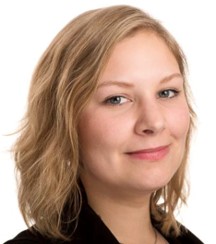
Madeleine Lorås has a Master in teaching education with a computer science and mathematics specialization. Her PhD project is working on undergraduate computing students and their study behavior. Specifically, her focus is on the first year of higher education and how the students develop their study habits, skills, strategies and tactics in order to someday become computing professionals with the skills and competencies to tackle future challenges.
Through interviews, surveys and questionnaires, Madeleine is tracking students’ progression though the first year. Her results so far indicate that they come into higher education with various backgrounds and previous experience, and in turn will develop their study behavior throughout the first year. Furthermore, computing students’ study behavior is heavily reliant on independent studying, often alone at home. These results inform the development of first year courses, as well as study program and curriculum design.
Lorås's supervisor is Trond Aalberg, Professor at OsloMet, and is affiliated with "Projects of Becoming". Co-supervisors are centre leader Guttorm Sindre and Professor Letizia Jaccherri
See Madeleine Lorås's profile in Cristin (Current Research Information System in Norway) for an overview of research and dissemination.
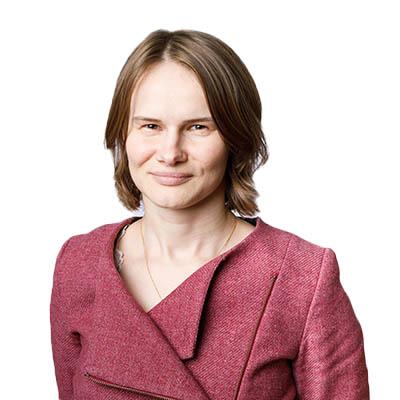
Justyna Szynkiewicz has an MA in Social Policy 2012, MA in International Economic Relations 2013, University of Bialystok, Poland
Her PhD work is focused on project-based learning university courses where students create IT artifacts. She is interviewing university students about their experiences in project courses and try to understand how they are affected by these experiences. Justyna is interested in computing culture, values, norms and other tacit elements of learning, as well as in computing identity that is developed by students, teachers, faculty members and other stakeholders.
Her work is influenced by work of Vygotsky, Piaget and Papert. Justyna views learning as a social, collaborative process where students gain competences beyond disciplinary content knowledge. She believes that the role of education is not only to prepare students for work in the industry but also to help them become reflective and ethical citizens that care about the wellbeing of our societies and planet. The results of her PhD could support the courses design as well as curriculum development.
Szynkiewicz's supervisor is Line Kolås Project leader of "Learning through construction". Her co-supervisor is Minna Salminen Karlsson Researcher at Department of Information Technology at Uppsala university.
See Justyna Szynkiewicz’ s profile in Cristin (Current Research Information System in Norway) for an overview of research and dissemination
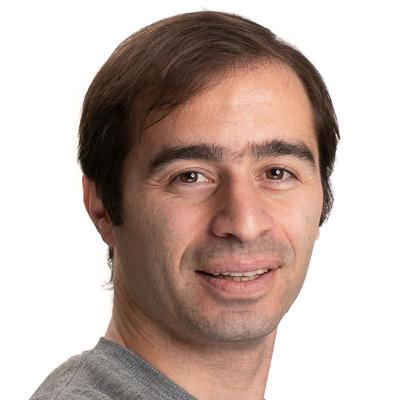 Abdullah Bahmani joined Excited in 2018 and has a background in software engineering from Iran. He is interested in organizational change, particularly at higher education institutions and how it could be facilitated by providing research-based guidelines.
Abdullah Bahmani joined Excited in 2018 and has a background in software engineering from Iran. He is interested in organizational change, particularly at higher education institutions and how it could be facilitated by providing research-based guidelines.
In 2019 he presented four papers on national and international conferences about multi-campus education. Recently, he also developed a conceptual framework for multi-campus course development. This project has a paper accepted in the EDUCON 2020 conference. Moreover, he is also working closely with two study program leaders in Trondheim and Gjøvik who started the development and establishment of a multi-campus study program at NTNU.
Ongoing research now is on measuring teacher’s readiness for multi-campus activities, with a survey for the target group. We aim at making this study and their answers relevant for university policymakers to take relevant actions. In addition to that, Abdullah is working on a systematic mapping review for categorizing the current literature in the applied area to identify the gaps there.
Bahmanis supervisor is Rune Hjelsvold, Project leader of "Sharing and diversity" His co-supervisor is Birgit Rognebakke Krogstie, centre co-director at Excited.
See Abdullah Bahmani’ s profile in Cristin (Current Research Information System in Norway) for an overview of research and dissemination
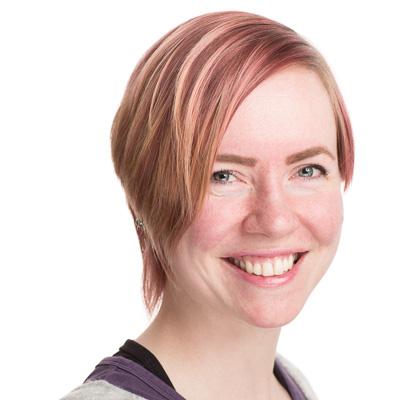
Gunhild Lundberg has her master’s degree in digital Collaboration. Lundberg is researching the transition from Higher Education to employment for IT-students more specifically on how to ease the transition to employment. She wants to broaden the term employability from including skills, knowledge, and personal attributes, to also include identity formation and awareness of employment possibilities.
She uses interviews and questionnaires to collect data from students and alumni from a computer science department, as well as those who hire these graduates. This gives insight to both the employer and the (future) employee perspective. By broadening the employability term, higher education must emphasize the development of not only skills, knowledge and personal attributes, but also identity formation and providing students with relevant information about their possibilities and what a career within computer science could be. This would make students more career-ready and able to put their curricula in a bigger context.
Lundbergs supervisor is Birgit Rognebakke Krogstie, co-leader of Excited and Project leader of "Career readiness". Co-supervisors are Guttorm Sindre , Excited and Ingunn Johanne Ness at SLATE Centre for the Science of Learning &Technology, University of Bergen
See Gunhild Lundberg’ s profile in Cristin (Current Research Information System in Norway) for an overview of research and dissemination.
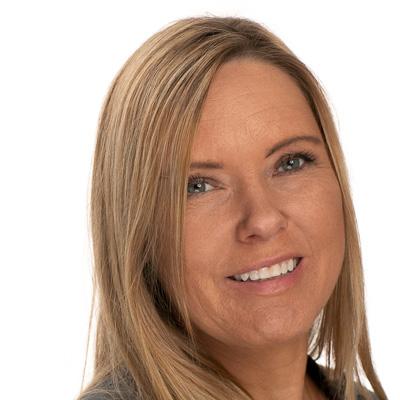
Hege Annette Olstad has a master’s degree in Digital Collaboration. What competence a job applicant has is often a topic in both the job advertisement and in the job interview itself. However, students find it challenging to understand what they are capable of when they enter the job market after higher education. How can they transform their competencies into meaningful knowledge with regard to self, academia, and career development?
Competence is an essential theme of the P5 project, which aims to strengthen the education-work connection. Heges research will focus on how to create awareness among students on gained competence by introducing ePortfolio, and will try to identify if ePortfolios can create awareness among students on gained competencies and how to implement ePortfolio without leading to increased workload for learning institutes and teachers.
Olsens supervisor is Birgit Rognebakke Krogstie, co-leader of Excited and Project leader of "Career readiness"
See Hege Annette Olstad’ s profile in Cristin (Current Research Information System in Norway) for an overview of research and dissemination.
Interviews with Excited PhD Candidates

Three Excited fellows soon to be finished
Doctoral degree on the relevance of the labor market in IT study programs
Working as a PhD candidate in SFU Excited
We believe that working in a research Centre like SFU Excited brings a lot of benefits. Not only are there ample opportunities to grow, learn and share with fellow experts within your field, but it is a great opportunity to network and increase your opportunities later in your career.
We got a hold of 5 Excited’s PhD candidates and asked for their perspectives on what it means to be a PhD student in the Centre.
The added value of working in a Centre
We know that students with a robust social network tend to thrive more in their academic pursuits than students that are lacking in this regard.
“Community”, one of the PhD students exclaim when being asked what the added values of being part of Excited is. “Work as a researcher can be lonely if you’re not part of a Centre like this. I think it’s great that we have a place to discuss, exchange ideas and support each other” she adds.
The student in question is Justyna Szynkiewicz, one of seven PhD candidates in SFU Excited. Along with her are four of her fellow students, Vojislav Vujošević, Madeleine Lorås, Abdullah Bahmani, Gunhild Marie Lundberg and Hege Annette Olstad.
The Centre is divided in five projects, as are the PhD candidates. Justyna works in project 3, “Learning through construction”. She is researching project-based learning and how students are affected by it.
Through and through there is a genuinely positive attitude towards working in the Centre. The students especially highlight the social and comradery benefits. “We’re not just PhD students. We are like colleagues, working in an organization and supporting each other. We have monthly seminars where we share, learn, ask questions and plan activities. There is a lot of value in that.” says Abdullah Bahmani, who works in project four, “Sharing and diversity”.
“I travel and attend a lot of conferences for work. Going to conferences alone could feel intimidating and kind of scary. I found that being part of a Centre helped me, both in confidence through support and companionship, but also in getting a stronger sense of representing something. I know that even if I do horrible at a talk or presentation somewhere, my team will be there to clap or laugh at my jokes. That is the kind of support that I don’t think all PhDs get”, Madeleine Lorås points out with a smile and a nod to her fellow students at the table. Madeleine works in project 2, “Projects of Becoming”, where she measures first year computing student’s learning curve.
The PhDs all agree that being in the same Centre, working on similar cases towards a common goal bares many benefits. Especially when compared to past experiences working in solitude. Throughout our conversation with the PhDs it becomes increasingly apparent that their reflections and experiences match the Centre’s overall vision. Through close collaboration with project leaders and a shared goal of improving education, they seem to have gathered a plethora of positive experiences and helpful lessons.
The safety net of a research Centre
When asked for specifics on what value working in a Centre brings, the candidates all agree that financial security and a solid backbone of available project leaders and professors are major keys in allowing them to focus on their work.
“Having talked with some of my colleagues who aren’t part of a Centre like Excited, I see I’m very privileged in the financial security and opportunities the Centre brings”, Justyna explains.
Abdullah agrees. “We don’t have to worry about the same stuff that other PhDs worry about. As an example, we can always ask our project leader questions and get feedback, which is a very comfortable situation.”
They all talk warmly about the administrative coordinator at Excited, Ida Sortland who helps out in a myriad of ways, like suggesting professors to talk to, providing feedback and helpful tips for their projects.
“The centre coordinator is very open to discussion and helping out. We don’t use as much time on practicalities, which allows us to focus on the important stuff”, says Vojislav Vujosevic, who works in project one “Informed Decision”. “We always have someone to ask, that’s what a Centre is - that is the main benefit for me”, Hege Annette Olstad from project five “Career Readiness” adds.
The universal language of teamwork
Gunhild Marie Lundberg started out on her own, one month before the Centre was established.
“I worked as a PhD outside of SFU Excited for about half a year.” She is currently part of project 5, researching the transition from higher education to employment for IT students.
“Being the only PhD in my department was rather lonely, I felt like no one really understood what I was working on. Being included in Excited changed all that.”
Gunhild is currently writing a paper with Justyna. They both share their experiences on working on the same topic, coming from widely different backgrounds.
“Even though we are working on the same concept, it’s a lot of fun to see how differently we think. It creates lots of interesting discussions”, Gunhild shares.
“Coming in with a different mindset and having a different vocabulary from each other makes it so that we have to think twice about the words we use. One word for me can mean something entirely different for Gunhild. It’s a wonderful opportunity for us to learn how to communicate and collaborate effectively.”
The team laughs as they think of examples where varied backgrounds and different perspectives have been sources to discussion, new paths, strain, fun and great opportunities.
“Sometimes simple questions can trigger something big in your mind that fundamentally changes the roadmap for your project. If we were too like-minded, questions like these might not have come up at all” Abdullah concludes.

